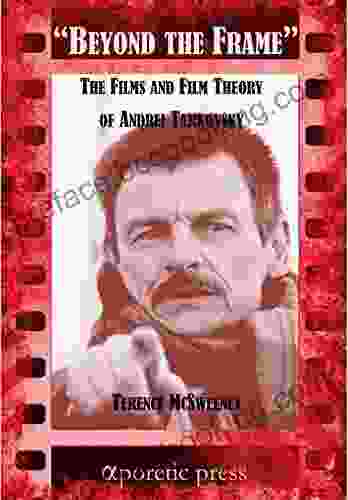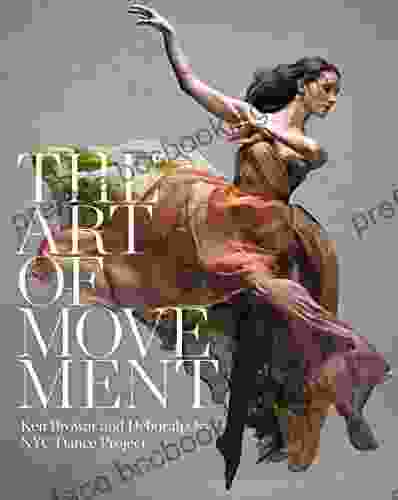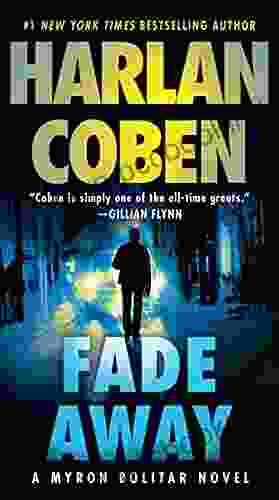The Films and Film Theory of Andrei Tarkovsky: A Journey into the Depths of Human Existence

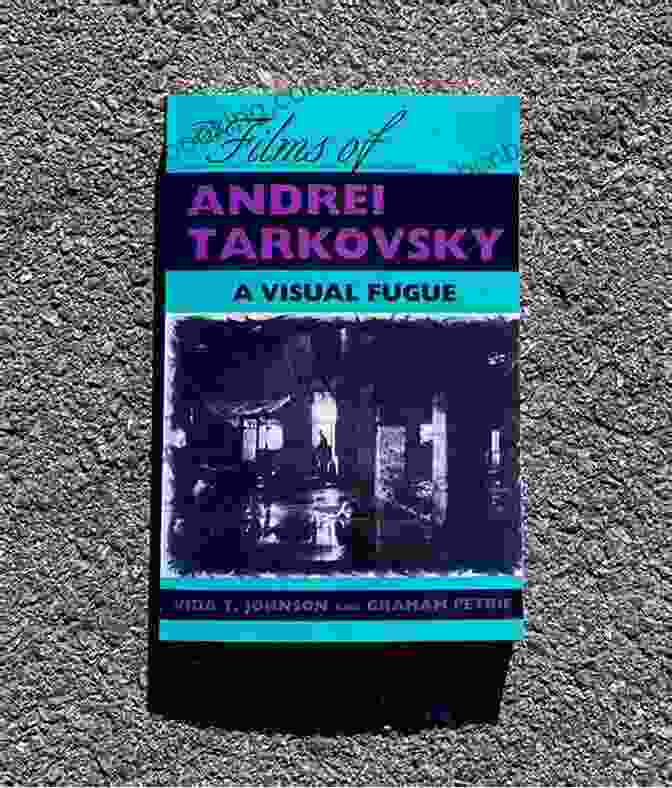
Andrei Arsenyevich Tarkovsky (1932-1986) was a Russian filmmaker, screenwriter, and theorist whose unique and visionary approach to cinema has left an indelible mark on the art form. Known for his profound philosophical explorations, stunning cinematography, and immersive storytelling, Tarkovsky's films have captivated audiences worldwide and continue to inspire and challenge cinephiles to this day.
5 out of 5
| Language | : | Spanish |
| File size | : | 1941 KB |
| Text-to-Speech | : | Enabled |
| Screen Reader | : | Supported |
| Enhanced typesetting | : | Enabled |
| Print length | : | 66 pages |
The Philosophical Underpinnings of Tarkovsky's Cinema
Tarkovsky's films are deeply imbued with his personal philosophical beliefs, which draw heavily on Christian existentialism, Eastern mysticism, and Russian Orthodox Christianity. He saw cinema as a means to explore the fundamental questions of human existence, such as the nature of time, memory, spirituality, and the search for meaning in a seemingly chaotic world.
In his seminal work, "Sculpting in Time," Tarkovsky outlined the principles of his cinematic theory, emphasizing the importance of "duration" over "action," the role of the viewer in creating meaning, and the exploration of the inner life of characters. He believed that film could transcend mere entertainment and delve into the depths of human consciousness, offering a transformative experience that could spark spiritual awakening and emotional catharsis.
The Cinematic Techniques of Tarkovsky's Films
Tarkovsky's films are renowned for their distinctive visual and narrative techniques, which serve to enhance the philosophical themes and create an immersive, dreamlike atmosphere.
Long Takes and Slow Pacing: Tarkovsky's films are characterized by long, carefully crafted takes that allow the viewer to fully absorb the beauty of the imagery and the nuances of performance. The slow pacing of his films creates a contemplative atmosphere, giving audiences ample time to reflect on the profound questions being raised.
Stunning Cinematography: Tarkovsky collaborated with gifted cinematographers, such as Alexander Sokurov and Vadim Yusov, to create visually stunning images that evoke a sense of transcendence and awe. Tarkovsky's use of natural light, evocative lighting, and meticulous attention to detail creates an immersive visual experience that transports viewers into the worlds of his films.
Symbolic Imagery: Tarkovsky's films are rich in symbolic imagery, often drawing upon religious iconography, nature, and everyday objects to convey multifaceted meanings. These symbols create a poetic and evocative layer that invites viewers to engage deeply with the film's subtext and explore their own personal interpretations.
Key Films and Their Philosophical Themes
Tarkovsky's filmography includes several masterpieces that have become touchstones of world cinema. Here are a few key films and the philosophical themes they explore:
- Ivan's Childhood (1962): War and its impact on the human soul, the fragility of childhood innocence, and the search for hope amidst suffering.
- Andrei Rublev (1966): Spirituality and the role of art in society, the struggle for faith in a time of turmoil and oppression.
- Solaris (1972): The nature of reality, the boundaries of human consciousness, and the complexities of love and loss.
- Stalker (1979): Faith, belief, and the transformative power of pilgrimage, played out in a mysterious and dangerous Zone.
- Nostalghia (1983): Memory, cultural identity, and the search for a sense of belonging in a foreign land.
- The Sacrifice (1986): Sacrifice, redemption, and the power of love in the face of impending nuclear disaster.
The Legacy of Andrei Tarkovsky
Andrei Tarkovsky's influence on cinema is undeniable. His groundbreaking work has inspired generations of filmmakers, including Ingmar Bergman, Béla Tarr, and Carlos Reygadas. His unique combination of philosophical depth, cinematic innovation, and emotional resonance has earned him a place among the greatest directors of all time.
The Films and Film Theory of Andrei Tarkovsky provide a profound and unforgettable cinematic experience that challenges our perceptions of reality, explores the depths of human existence, and inspires us to contemplate the fundamental questions of life. Through his innovative techniques and richly symbolic imagery, Tarkovsky's films transcend mere entertainment and become powerful vessels for spiritual inquiry and emotional catharsis. As we delve into the enigmatic universe of Andrei Tarkovsky, we embark on a cinematic journey that transforms our perspectives on the world and leaves an enduring mark on our souls.
5 out of 5
| Language | : | Spanish |
| File size | : | 1941 KB |
| Text-to-Speech | : | Enabled |
| Screen Reader | : | Supported |
| Enhanced typesetting | : | Enabled |
| Print length | : | 66 pages |
Do you want to contribute by writing guest posts on this blog?
Please contact us and send us a resume of previous articles that you have written.
 Book
Book Novel
Novel Page
Page Chapter
Chapter Text
Text Story
Story Genre
Genre Reader
Reader Library
Library Paperback
Paperback E-book
E-book Magazine
Magazine Newspaper
Newspaper Paragraph
Paragraph Sentence
Sentence Bookmark
Bookmark Shelf
Shelf Glossary
Glossary Bibliography
Bibliography Foreword
Foreword Preface
Preface Synopsis
Synopsis Annotation
Annotation Footnote
Footnote Manuscript
Manuscript Scroll
Scroll Codex
Codex Tome
Tome Bestseller
Bestseller Classics
Classics Library card
Library card Narrative
Narrative Biography
Biography Autobiography
Autobiography Memoir
Memoir Reference
Reference Encyclopedia
Encyclopedia Leigh Bardugo
Leigh Bardugo Greg Jenkins
Greg Jenkins R H Sin
R H Sin Steve Hindman
Steve Hindman Larry Jacobson
Larry Jacobson Meghan Scott Molin
Meghan Scott Molin Rifujin Na Magonote
Rifujin Na Magonote Gina Frangello
Gina Frangello Giorgos Kallis
Giorgos Kallis Matt Titus
Matt Titus L S Boos
L S Boos Janet Lee Carey
Janet Lee Carey Greg Rucka
Greg Rucka Tamara Mellon
Tamara Mellon Glenna Mageau
Glenna Mageau Tom Lalicki
Tom Lalicki Jerry Pallotta
Jerry Pallotta Hana Schank
Hana Schank Grivante
Grivante Greg Ruth
Greg Ruth
Light bulbAdvertise smarter! Our strategic ad space ensures maximum exposure. Reserve your spot today!

 Ralph TurnerAn Essential Guide to the Professional Workplace: The Ultimate Resource for...
Ralph TurnerAn Essential Guide to the Professional Workplace: The Ultimate Resource for...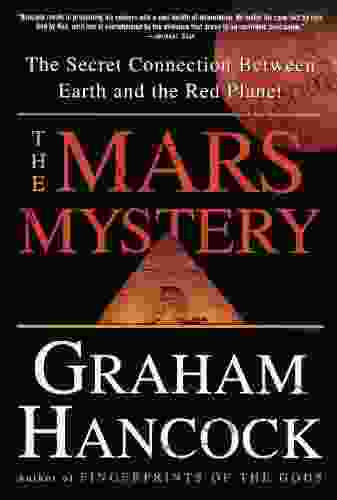
 Deion SimmonsUnveiling the Secret Connection: The Allure of Mars and Its Earthly Ties |...
Deion SimmonsUnveiling the Secret Connection: The Allure of Mars and Its Earthly Ties |...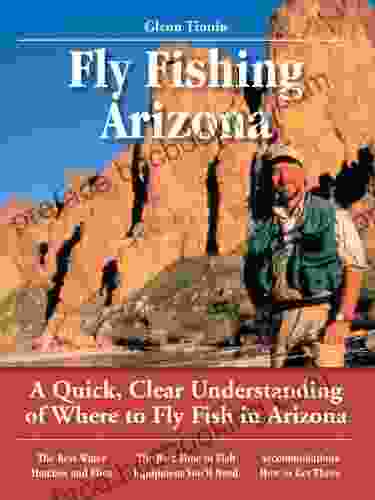
 Isaias BlairUnlock the Secrets of Arizona's Fly Fishing Havens: A Comprehensive Guide to...
Isaias BlairUnlock the Secrets of Arizona's Fly Fishing Havens: A Comprehensive Guide to... Jeffrey HayesFollow ·15.2k
Jeffrey HayesFollow ·15.2k Ashton ReedFollow ·17.9k
Ashton ReedFollow ·17.9k Glenn HayesFollow ·18.2k
Glenn HayesFollow ·18.2k Ernest PowellFollow ·9.8k
Ernest PowellFollow ·9.8k Marvin HayesFollow ·10.2k
Marvin HayesFollow ·10.2k Joel MitchellFollow ·16.3k
Joel MitchellFollow ·16.3k Jay SimmonsFollow ·11.1k
Jay SimmonsFollow ·11.1k Douglas PowellFollow ·5k
Douglas PowellFollow ·5k

 Brady Mitchell
Brady MitchellMaster IELTS Speaking: The Ultimate Guide to Success
Kickstart Your IELTS...
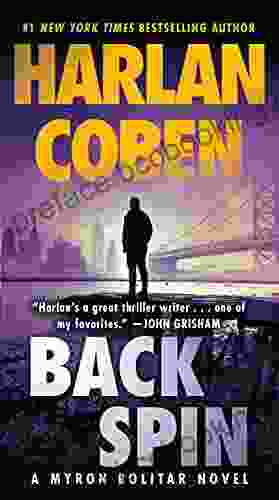
 Branden Simmons
Branden SimmonsBack Spin: A Thrilling Myron Bolitar Novel
Get ready to embark on a...
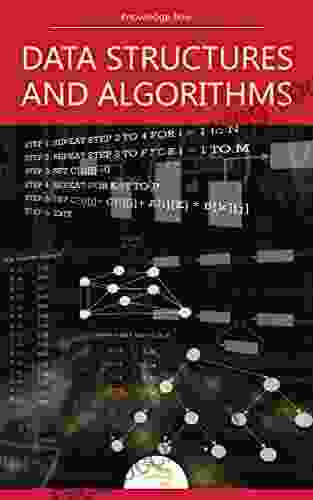
 Marc Foster
Marc FosterData Structures and Algorithms: A Comprehensive Guide to...
In the ever-evolving...

 Jeff Foster
Jeff FosterUnveiling the Basics of Microbiology: A Comprehensive...
The world of...
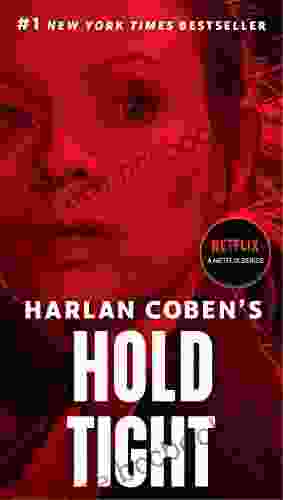
 J.D. Salinger
J.D. SalingerHold Tight Suspense Thriller: A Gripping Page-Turner That...
Are you ready for a suspense thriller that...
5 out of 5
| Language | : | Spanish |
| File size | : | 1941 KB |
| Text-to-Speech | : | Enabled |
| Screen Reader | : | Supported |
| Enhanced typesetting | : | Enabled |
| Print length | : | 66 pages |


